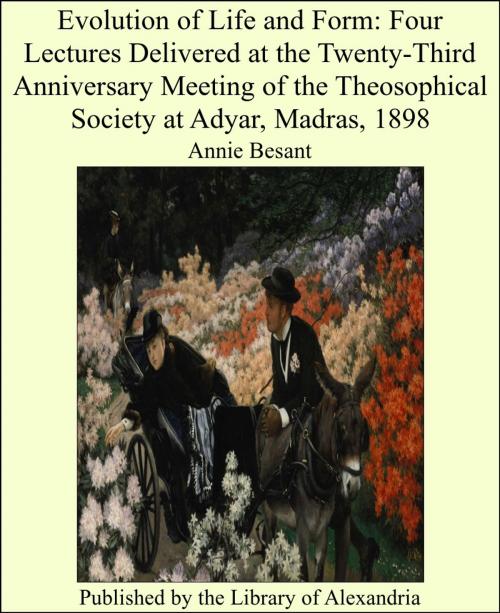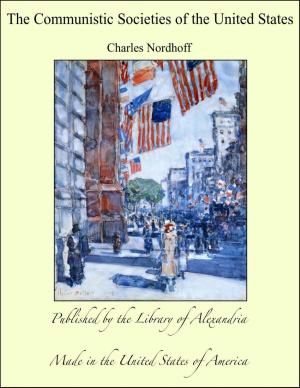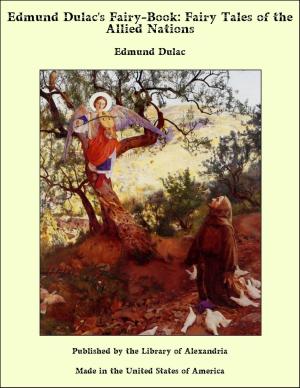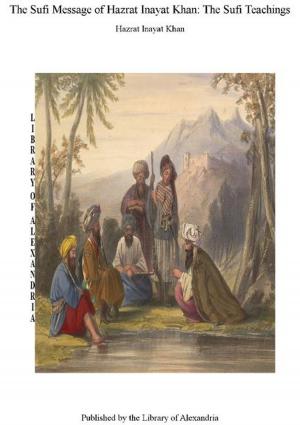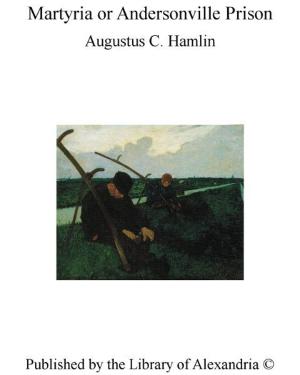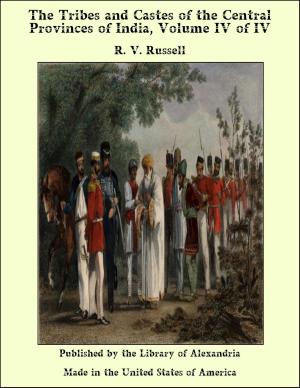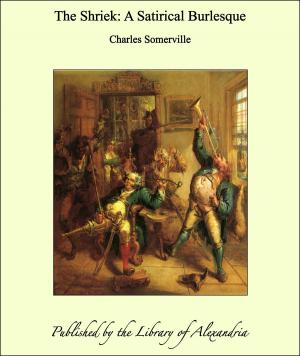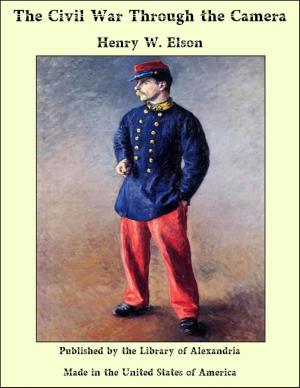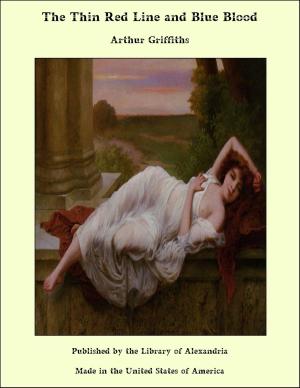Evolution of Life and Form: Four Lectures Delivered at the Twenty-Third Anniversary Meeting of the Theosophical Society at Adyar, Madras, 1898
Nonfiction, Religion & Spirituality, New Age, History, Fiction & Literature| Author: | Annie Besant | ISBN: | 9781465538307 |
| Publisher: | Library of Alexandria | Publication: | July 29, 2009 |
| Imprint: | Library of Alexandria | Language: | English |
| Author: | Annie Besant |
| ISBN: | 9781465538307 |
| Publisher: | Library of Alexandria |
| Publication: | July 29, 2009 |
| Imprint: | Library of Alexandria |
| Language: | English |
ANCIENT AND MODERN SCIENCE. My BrOthers:—The subject on which I am to address you this morning, and the three mornings that follow, is one of considerable complexity and difficulty. I do not apologise to you for the difficulty of my theme. When we meet here in our Anniversary Meeting, we meet as students and not simply as superficial men and women of the world. We try to prepare ourselves, by study, for the exchange of thought which in these gatherings takes place, and although the subject is a difficult one, although it is not possible to make it clear and intelligible without the use of certain technical terms, yet, to the student technical terms—being precise—are really the easiest to understand, and inasmuch as, in a great majority at least, we are students, I who speak, and you who listen, we may be content to treat the subject in a somewhat formal and technical way. Roughly, my outline is this. I want to lay before you an intelligible conception of evolution, taking it on its two sides, that of the evolving life and that of the developing forms. I begin by laying before you a sketch of the methods of "Ancient and Modern Science," the direction in which each has worked, and is working, the ultimate union that, we hope, may take place between them. For what could more fully presage the good of the whole world, what could promise more happily for the relationship between the different races of humanity, than to draw together on the plane of mind the science of antiquity and of modern days, the science of the East and of the West, and, by wedding them to each Other, draw together the nations that are now divided, and make objective that brOtherhood of humanity of which we dream. Dealing first with ancient and modern science in this broad and general way, and taking that as my subject for this morning, I shall pass on to-morrow to speak on the "Functions of the Gods," meaning by that phrase the activities of that invisible side of nature on which the whole of the visible depends. Whether we use here the name "Devas" to represent those developed spiritual intelligences, or whether with the child of Islâm, with the Hebrew or the Christian, we speak of the "Angels" and "Archangels," the name matters nothing; the conception is common to every faith of man. We shall study their functions in the universe, and try to understand how they act as the ministers of the Divine Will. Then we shall pass on to treat of that "Evolution of Life" which lies underneath the evolution of forms. Finally, we shall treat the "Evolution of Forms," and see how, in that evolution, is the promise of final perfection, how all is working to a perfect ending, how the best that we can dream of is less than the performance of God. That is the outline of our work. Let us at once begin the first section of the subject—Ancient and Modern Science. Now, in the olden times, in those times to which in this land our thought turns back most fondly with reverence and with pride, in those times, here, as in every Other ancient land, Religion and Science were wedded together, and there was no discord between the intelligence and the spirit. It matters not whither you wander amid the ancient nations of the world: you may travel through the whole of Chaldea; you may study the remains of ancient Egypt; you may go through Persia and search amid her monuments; you may cross the Atlantic to America, and unbury the cities that were lost ere yet the Aztecs had made the mighty State which fell under the blows of the Spaniards; you may go into China and, in the vast recesses of that well-nigh unknown land, you may search for what has been left there from ancient days; or without going outside the limits of your own land, you may take the literature that is our pride, the mighty books written by the ishis of the past; and everywhere antiquity speaks with a single tongue. Religion reveals the spirit, the spiritual truth which is one. Intelligence studies that truth in its manifold manifestations, and its work; science, studying the phenomena which are images of aspects of the Divine, is the handmaid, is the sister, of religion, and between them discord is unnatural and fatal to progress. That is the ancient view; but when we come to our own century a new phenomenon presents itself to our gaze—religion on the one side suspicious of science in its progress, science on the Other hand apt to be proudly contemptuous of religious claims. How has the divorce arisen? Why this discord between two of the great helpers of human evolution? The reason is not far to seek. In the western world the science of the elder time, the science of antiquity, disappeared in the great flood of barbaric invasions, underneath the whirlpool caused by the ruins of the Roman Empire, and later on, underneath the wreckage of that same Empire with its new centre in Constantinople. The invasions of barbarians, both from the East and the North, sweeping over the European continent, brought ignorance in the wake of barbaric conquest. The result was that night came down upon knowledge and thick darkness enveloped the lands which were to be the nursery of a new civilisation. When the Sun of science again began to rise upon the Western world, it presented itself in a form which was alien, nay, which was more than alien, which was hostile to the dominant religion of the time. It came from the children of Islâm. It came from those who recognised Muhammed as their Prophet. From the Muslim schools of Arabia came the first teachers of modern science to Europe. True, they were really by their intellectual ancestry descended from the thought of Greece. They drew their inspiration from the school of Plato through the Neo-Platonists; they reproduced the ideas of Porphyry and Ptolemy, and of Other Grecian and Egyptian thinkers, Neo-Platonic and even Gnostic. But they threw over it the garb of Islâm, they presented it in the form of Arabic thought. The result of this was that, as it made its way into Spain in the wake of the conquering Moors, as it came with those who drove out of the Southern Peninsula the rule of the Spanish Christian monarchy, so the first aspect of science to Christians was an aspect of hostility. It came as an invading enemy and not as an illuminant to all. Hence conflict arose; some who were within the limits of the mighty Church of Rome, touched by a longing for the new learning, stretched out their hands to take the gifts that science was bringing. These men were regarded with suspicion, nay, with more than suspicion, with hatred that broke out in bitter persecution. Who can read the history of Roger Bacon, the wondrous monk; who can picture Copernicus on his death-bed as his immortal work is brought to him ere yet his eyes are closed, he having shrunk from earlier publication, lest the stake should be his portion; who can stand in the Field of Flowers in Rome, and see there the statue erected where he was burned to death, who dying in one century, lives for all centuries to come—Giordano Bruno; who can listen to Galileo, as with faltering lips he denies the truth he knows and utters the falsehood that he knows not; who can follow these martyr-steps, led on by bitter memories of blood and fire, without understanding the reason for the hostility of science to religion, without confessing with shame and sorrow that that hostility was caused and was justified by the cruelties wreaked by religion on science, when science was young and feeble? Every one of us who stands upon the side of religion should recognise that we are reaping the bitter harvest of our own past errors, and that the law is just which brings upon us the difficulties and opposition we encounter in our modern days. For as science grew strong, she grew strong with the sword in her hands. She fought for every inch of the ground on which she stood, and only so far as she could guard herself was she safe from the flame or from the prison. Hence she searched for everything in nature that could serve as a weapon against the foe that attacked her. Hence she welcomed eagerly everything which seemed to show that materialism was the true philosophy of life. If we go back twenty-five years, to the time when I and some of you were young, we shall find that over western science there hung the shadow of materialism, and that stronger and stronger grew the scientific tendency to "see in matter the promise and the potency of every form of life." You remember those famous words of Professor Tyndall, no materialist in his thought and a religious man in his aspirations, but wellnigh driven by despair to claim fair field for science, and to fling back the claims of religion, because among them was included the right to gag, the refusal to allow thought to be honestly uttered by the thinker. But things are changing more and more; as religion has been growing more liberal and more rational, science is becoming less materialistic and less aggressive; and we shall see presently that the most modern of modern science—not quite the science that you get in your textbooks, for that is practically out-of-date in the rush of thought which comes from the West, but the science of the leaders of thought, the science of the first men in the scientific camp—is more and more approaching the domain where scientists will recognise religion as helper and not as enemy. In fact, speaking from the same chair from which Tyndall had uttered his famous phrase that "in matter he saw the promise and potency of every form of life," his successor, Sir William Crookes, a member of our own Theosophical Society, declared, reversing those words of his predecessor, that "In life I see the promise and potency of all forms of matter
ANCIENT AND MODERN SCIENCE. My BrOthers:—The subject on which I am to address you this morning, and the three mornings that follow, is one of considerable complexity and difficulty. I do not apologise to you for the difficulty of my theme. When we meet here in our Anniversary Meeting, we meet as students and not simply as superficial men and women of the world. We try to prepare ourselves, by study, for the exchange of thought which in these gatherings takes place, and although the subject is a difficult one, although it is not possible to make it clear and intelligible without the use of certain technical terms, yet, to the student technical terms—being precise—are really the easiest to understand, and inasmuch as, in a great majority at least, we are students, I who speak, and you who listen, we may be content to treat the subject in a somewhat formal and technical way. Roughly, my outline is this. I want to lay before you an intelligible conception of evolution, taking it on its two sides, that of the evolving life and that of the developing forms. I begin by laying before you a sketch of the methods of "Ancient and Modern Science," the direction in which each has worked, and is working, the ultimate union that, we hope, may take place between them. For what could more fully presage the good of the whole world, what could promise more happily for the relationship between the different races of humanity, than to draw together on the plane of mind the science of antiquity and of modern days, the science of the East and of the West, and, by wedding them to each Other, draw together the nations that are now divided, and make objective that brOtherhood of humanity of which we dream. Dealing first with ancient and modern science in this broad and general way, and taking that as my subject for this morning, I shall pass on to-morrow to speak on the "Functions of the Gods," meaning by that phrase the activities of that invisible side of nature on which the whole of the visible depends. Whether we use here the name "Devas" to represent those developed spiritual intelligences, or whether with the child of Islâm, with the Hebrew or the Christian, we speak of the "Angels" and "Archangels," the name matters nothing; the conception is common to every faith of man. We shall study their functions in the universe, and try to understand how they act as the ministers of the Divine Will. Then we shall pass on to treat of that "Evolution of Life" which lies underneath the evolution of forms. Finally, we shall treat the "Evolution of Forms," and see how, in that evolution, is the promise of final perfection, how all is working to a perfect ending, how the best that we can dream of is less than the performance of God. That is the outline of our work. Let us at once begin the first section of the subject—Ancient and Modern Science. Now, in the olden times, in those times to which in this land our thought turns back most fondly with reverence and with pride, in those times, here, as in every Other ancient land, Religion and Science were wedded together, and there was no discord between the intelligence and the spirit. It matters not whither you wander amid the ancient nations of the world: you may travel through the whole of Chaldea; you may study the remains of ancient Egypt; you may go through Persia and search amid her monuments; you may cross the Atlantic to America, and unbury the cities that were lost ere yet the Aztecs had made the mighty State which fell under the blows of the Spaniards; you may go into China and, in the vast recesses of that well-nigh unknown land, you may search for what has been left there from ancient days; or without going outside the limits of your own land, you may take the literature that is our pride, the mighty books written by the ishis of the past; and everywhere antiquity speaks with a single tongue. Religion reveals the spirit, the spiritual truth which is one. Intelligence studies that truth in its manifold manifestations, and its work; science, studying the phenomena which are images of aspects of the Divine, is the handmaid, is the sister, of religion, and between them discord is unnatural and fatal to progress. That is the ancient view; but when we come to our own century a new phenomenon presents itself to our gaze—religion on the one side suspicious of science in its progress, science on the Other hand apt to be proudly contemptuous of religious claims. How has the divorce arisen? Why this discord between two of the great helpers of human evolution? The reason is not far to seek. In the western world the science of the elder time, the science of antiquity, disappeared in the great flood of barbaric invasions, underneath the whirlpool caused by the ruins of the Roman Empire, and later on, underneath the wreckage of that same Empire with its new centre in Constantinople. The invasions of barbarians, both from the East and the North, sweeping over the European continent, brought ignorance in the wake of barbaric conquest. The result was that night came down upon knowledge and thick darkness enveloped the lands which were to be the nursery of a new civilisation. When the Sun of science again began to rise upon the Western world, it presented itself in a form which was alien, nay, which was more than alien, which was hostile to the dominant religion of the time. It came from the children of Islâm. It came from those who recognised Muhammed as their Prophet. From the Muslim schools of Arabia came the first teachers of modern science to Europe. True, they were really by their intellectual ancestry descended from the thought of Greece. They drew their inspiration from the school of Plato through the Neo-Platonists; they reproduced the ideas of Porphyry and Ptolemy, and of Other Grecian and Egyptian thinkers, Neo-Platonic and even Gnostic. But they threw over it the garb of Islâm, they presented it in the form of Arabic thought. The result of this was that, as it made its way into Spain in the wake of the conquering Moors, as it came with those who drove out of the Southern Peninsula the rule of the Spanish Christian monarchy, so the first aspect of science to Christians was an aspect of hostility. It came as an invading enemy and not as an illuminant to all. Hence conflict arose; some who were within the limits of the mighty Church of Rome, touched by a longing for the new learning, stretched out their hands to take the gifts that science was bringing. These men were regarded with suspicion, nay, with more than suspicion, with hatred that broke out in bitter persecution. Who can read the history of Roger Bacon, the wondrous monk; who can picture Copernicus on his death-bed as his immortal work is brought to him ere yet his eyes are closed, he having shrunk from earlier publication, lest the stake should be his portion; who can stand in the Field of Flowers in Rome, and see there the statue erected where he was burned to death, who dying in one century, lives for all centuries to come—Giordano Bruno; who can listen to Galileo, as with faltering lips he denies the truth he knows and utters the falsehood that he knows not; who can follow these martyr-steps, led on by bitter memories of blood and fire, without understanding the reason for the hostility of science to religion, without confessing with shame and sorrow that that hostility was caused and was justified by the cruelties wreaked by religion on science, when science was young and feeble? Every one of us who stands upon the side of religion should recognise that we are reaping the bitter harvest of our own past errors, and that the law is just which brings upon us the difficulties and opposition we encounter in our modern days. For as science grew strong, she grew strong with the sword in her hands. She fought for every inch of the ground on which she stood, and only so far as she could guard herself was she safe from the flame or from the prison. Hence she searched for everything in nature that could serve as a weapon against the foe that attacked her. Hence she welcomed eagerly everything which seemed to show that materialism was the true philosophy of life. If we go back twenty-five years, to the time when I and some of you were young, we shall find that over western science there hung the shadow of materialism, and that stronger and stronger grew the scientific tendency to "see in matter the promise and the potency of every form of life." You remember those famous words of Professor Tyndall, no materialist in his thought and a religious man in his aspirations, but wellnigh driven by despair to claim fair field for science, and to fling back the claims of religion, because among them was included the right to gag, the refusal to allow thought to be honestly uttered by the thinker. But things are changing more and more; as religion has been growing more liberal and more rational, science is becoming less materialistic and less aggressive; and we shall see presently that the most modern of modern science—not quite the science that you get in your textbooks, for that is practically out-of-date in the rush of thought which comes from the West, but the science of the leaders of thought, the science of the first men in the scientific camp—is more and more approaching the domain where scientists will recognise religion as helper and not as enemy. In fact, speaking from the same chair from which Tyndall had uttered his famous phrase that "in matter he saw the promise and potency of every form of life," his successor, Sir William Crookes, a member of our own Theosophical Society, declared, reversing those words of his predecessor, that "In life I see the promise and potency of all forms of matter
